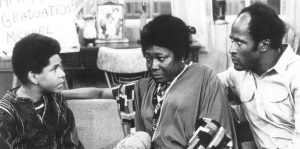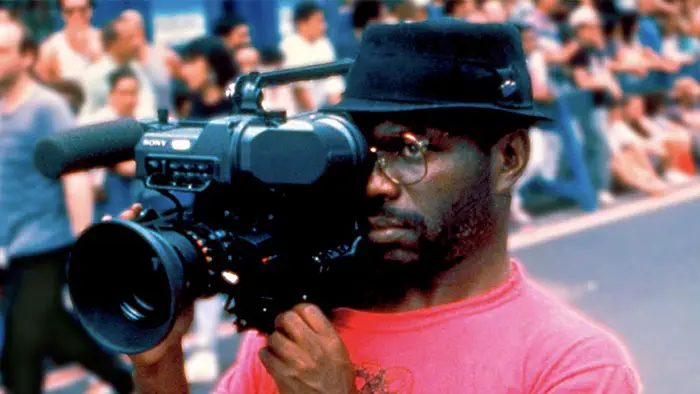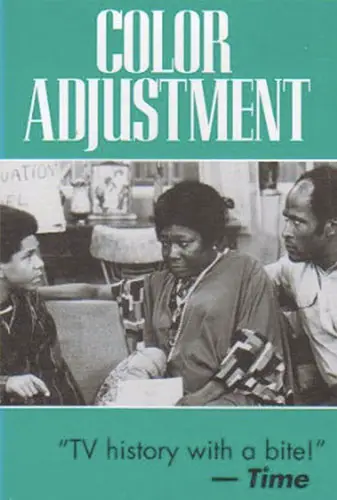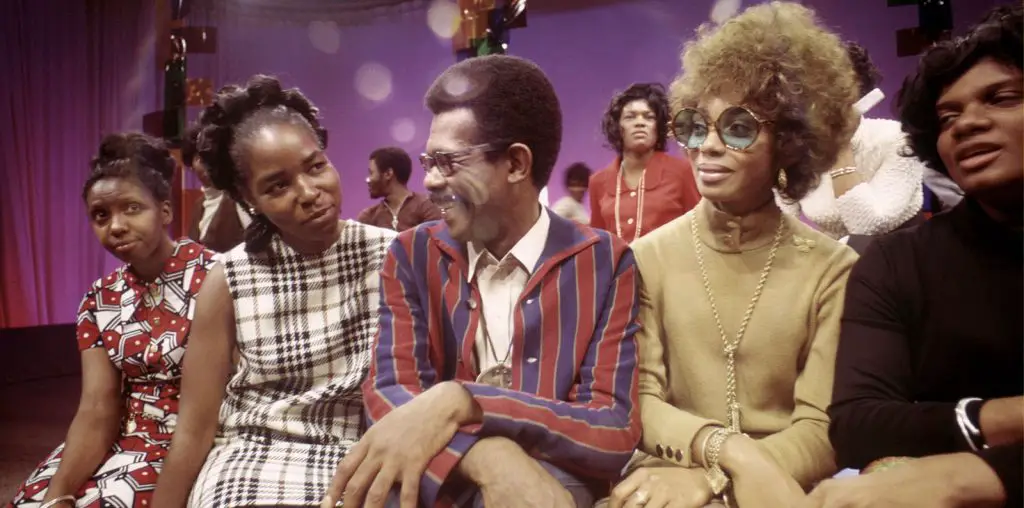
East Side/West Side, a 1962 hour-long procedural starring George C. Scott and Cecily Tyson, was also a trailblazing work. Featuring such future stars as Martin Sheen, James Earl Jones, Louis Gossett Jr., Alan Alda, Gene Hackman, and Charles Durning, among countless others, the show stared racism in its ugly face with bold storylines that confronted (then) societal norms. It was also canceled after just one season.
Another hero was Tim Reid, perhaps best known for his role as D.J. Venus Flytrap in WKRP in Cincinnati. Reid and his wife, who are both interviewed in the documentary, starred in a little-seen sitcom called Frank’s Place that ran for one season in 1987. The show, which was touted as one of the most realistic portrayals the Black American experience at its time, was canceled by CBS due to low ratings. But, as Daphne Maxwell Reid points out, it was moved six times on the schedule, making it difficult for viewers to tune in regularly. Despite its cancellation, the series won a number of Emmys, and in 2013 TV Guide ranked Frank’s Place number 3 of shows that were “canceled too soon.”

“…successfully charts the progress of Black exposure on television…”
Riggs successfully charts the progress of Black exposure on television through its earliest days and asks: at what cost? Shifting characterizations from bumbling, singing-and-dancing showmen to the affluent, non-threatening, inoffensive portrayals of Cosby just as easily perpetuated racism through oversimplification.
Given that Color Adjustment initially aired in 1994, it seemed a glaring omission that it left out some of the more nuanced looks into Black representation in such popular shows as Family Matters (1989), In Living Color (1990), and ROC (1991).
Those omissions aside, Color Adjustment provides enough footage and interviews that clearly show the early struggles for a voice in the medium. Watching it today, the most disappointing aspect is while televised representation may have broadened a bit, the society whom TV serves still seems stuck in the past.

"…the affluent, non-threatening, inoffensive portrayals of Cosby just as easily perpetuated racism through oversimplification."


